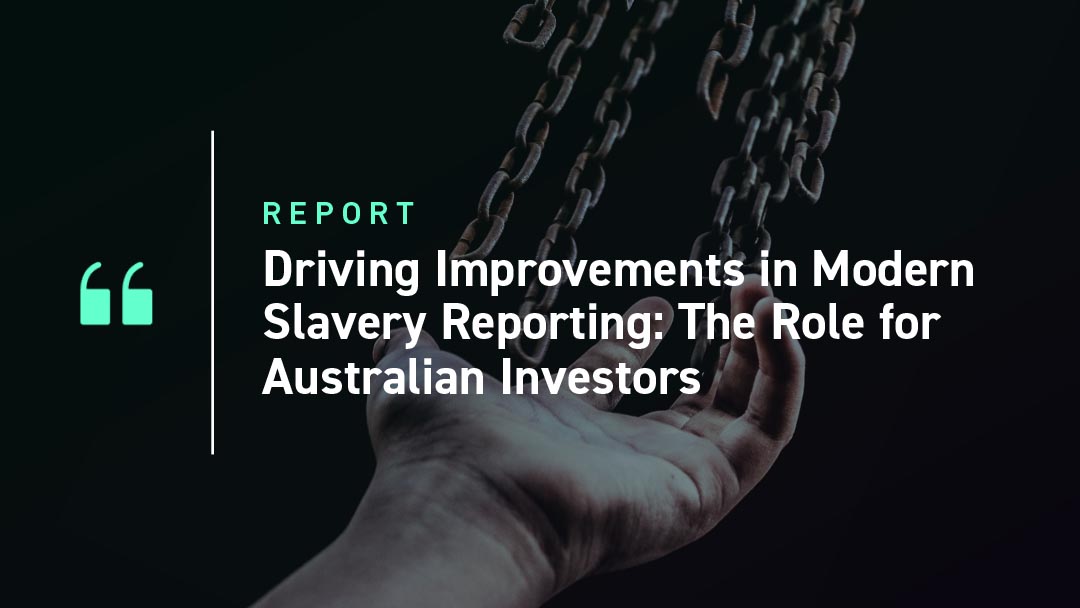Below is an excerpt from ISS ESG’s recently released paper “Driving Improvements in Modern Slavery Reporting: The Role for Australian Investors”, produced in collaboration with Monash University’s Centre for Financial Studies. The full paper is available for download from the Institutional Shareholder Services (ISS) online library.

KEY TAKEAWAYS
Australia’s Modern Slavery Act 2018 (MSA) was intended to create a race to the top among Australian companies in addressing modern slavery disclosure. The response from corporate Australia is lagging, however. ISS ESG’s Modern Slavery Scorecard and Monash University Centre for Financial Studies’ (MCFS) research on corporate disclosures under the MSA identify three key gaps in S&P/ASX 300 modern slavery reporting and performance:
Identifying modern slavery exposure in operations
- Operational-level modern slavery risks tend to be overlooked, especially in the professional services sectors.
- There is a significant discrepancy between S&P/ASX 300 companies’ own assessment of their operational modern slavery risks as disclosed in their statements reviewed by MCFS, and the external assessment of companies’ risk by ISS ESG.
Mapping the extended supply chain to identify modern slavery risks
- The majority of S&P/ASX 300 modern slavery statements do not extend to their indirect suppliers, where the risk of exploitative labour is high.
- To better understand modern slavery risks, investors can encourage companies to map their extended supply chains and have a systematic approach to risk assessment and management.
Providing and enabling remedy
- Examples of remediation of modern slavery controversies are scarce. Credible measures have been adopted in only 4% of cases assessed by ISS ESG.
- Just over half (51%) of S&P/ASX 300 companies describe remediation processes in their modern slavery statements, and these tend to prioritise whistle-blower policies over mechanisms that address the root cause of exploitative labour.
REMEDIATION OF MODERN SLAVERY CONTROVERSIES

Source: ISS ESG Norm-Based Research
Explore ISS ESG solutions mentioned in this report:
- Assess companies’ adherence to international norms on human rights, labor standards, environmental protection and anti-corruption using ISS ESG Norm-Based Research.
- ISS ESG’s Modern Slavery Scorecard enables investors to identify, evaluate and act on modern slavery-related risks and their impact on global portfolios. The Scorecard provides a company-specific and portfolio-level assessment of modern slavery risks in operations and supply chains, preparedness to address those risks, and links to modern slavery controversies. For more information, please get in contact via ISS ESG Australia’s website.
By Clare Bartram, ESG Specialist, Modern Slavery, ISS ESG. Nga Pham, PhD, CFA. – Research Fellow, Monash Centre for Financial Studies.




